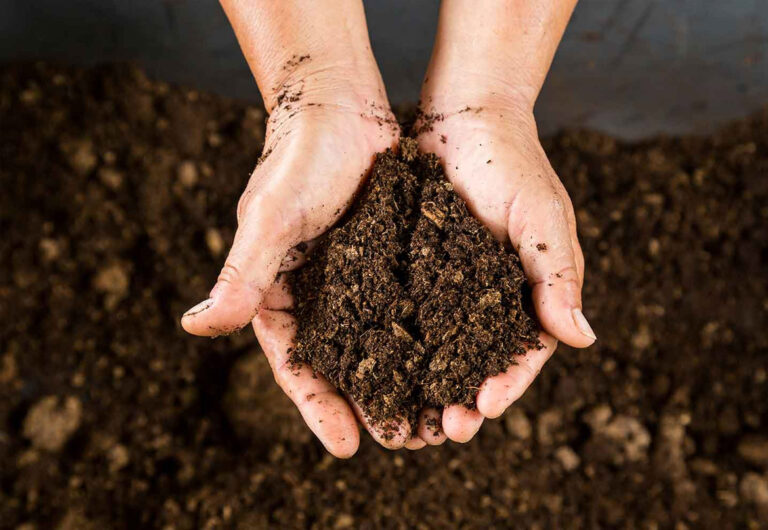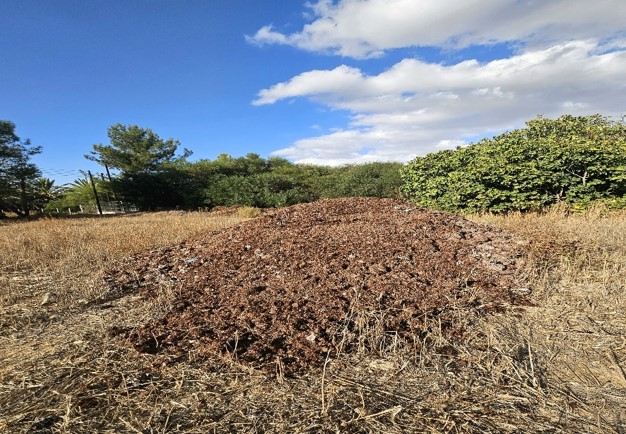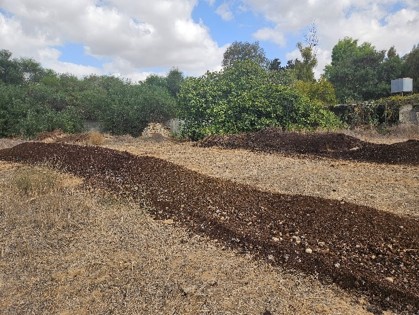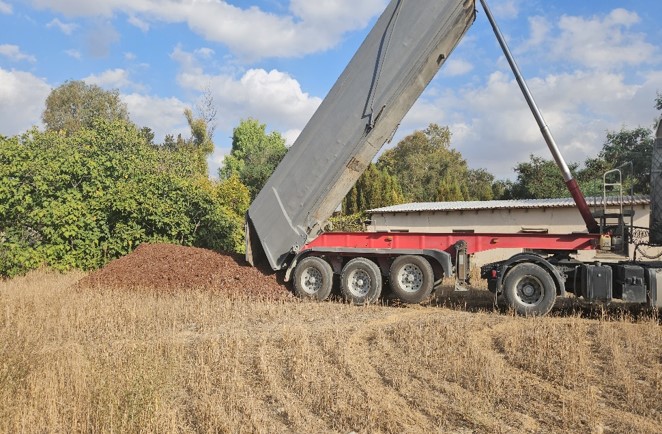
Increasing soil organic matter (SOM) is crucial in combating desertification and soil degradation, as it enhances water storage capacity, fosters a healthy habitat for beneficial soil bacteria and biodiversity, sequesters carbon, and strengthens soil resilience against climate change.
In Cyprus, there is underutilization of waste biomass, including park and garden cuttings, prunings, and food waste, which could be utilized as beneficial soil additives. Diverting these materials from landfill and using them for compost and integration into soil, mitigates climate change by reducing methane production from landfill, reducing the carbon footprint of municipal organic waste management and capturing carbon in the soil.
This action aims to develop the compost market by demonstrating the effectiveness of compost use in soil, and, by providing protocols for compost production and application to soil, it aims to increase acceptance by farmers. In parallel, the project outcome will indicate to policy makers what essential elements would be necessary in order to replicate this system in other areas across Cyprus facing similar challenges of green waste management and soil degradation.
LIFE AgrOassis Composting Units
A pilot composting unit was set-up in October 2023 at the Agricultural Research Institute (ARI) farm in Cyprus with a capacity of 200m³ per year. The unit is equipped with a compost turner and compost sieve, components built by a local manufacturer. This great achievement significantly minimizes costs, as they were not purchased from the international market, and contributes to the sustainability of local compost production. Following an agreement with Lakatamia Municipality, the unit receives green waste from their parks and gardens.
Based on the experience from the ARI composting unit, a second composting facility will be established near a poultry farm in the fire-stricken Ora village, Cyprus, by project partner Paradisiotis Company (PRD), beginning in 2024. This plant will produce 200 m³ of compost annually from poultry manure and fire-affected prunings, primarily for use in neighboring orchards.
Compost analysis and fertilization plan
Compost application is integral to the fertilization plan for crops. ARI will conduct regular compost sampling for analysis and, in collaboration with KES Research Centre, develop a decision-making system to match field needs with the quantity and method of compost application in soil. This system, based on compost and soil analysis data, will focus on improving soil physical and water characteristics, and/or reducing inorganic fertilizer usage. During this process, specific requirements will be identified and described, and methodology protocols will be established.
Application of compost in the fields
In collaboration with cereal producers, compost is applied to fields a few weeks before seeding. It is anticipated that at least 5 ha of land will be included in this activity, with one incorporation every two years. Farmer training on compost benefits and demonstrations of the appropriate application procedure will run parallel to these activities. These are considered as essential requirements for developing the compost market.
During the first year of LIFE-AgrOassis, due to delays in the building procedure of the Composting Unit, an alternative solution was implemented for field compost application. Spent mushroom substrate (126m3) from Kyriakides Mushrooms Company was applied two weeks before cereal seeding across 2ha of land. Mature compost samples were collected for analysis, determining the appropriate amount needed for specific soil and crop conditions (at a rate of 6m3 per decare). Additionally, a “control” area spanning 0.3 hectares was maintained, following conventional management practices for comparative purposes.
Photos below: @lifeagroassis


